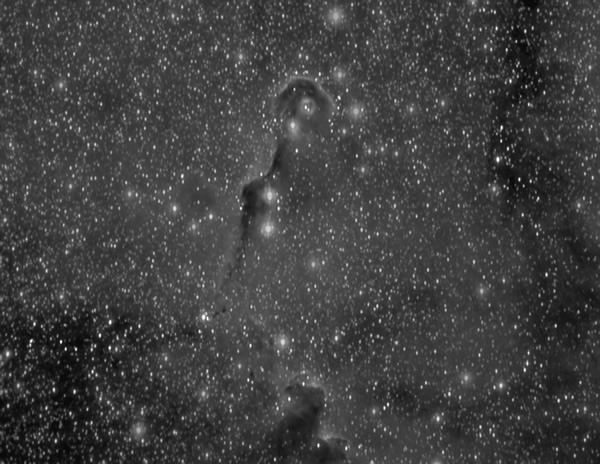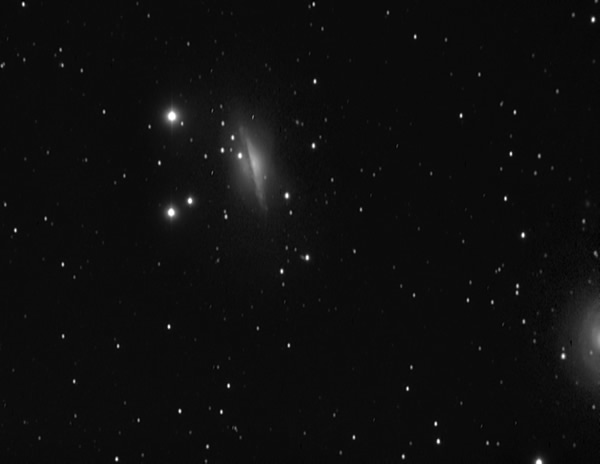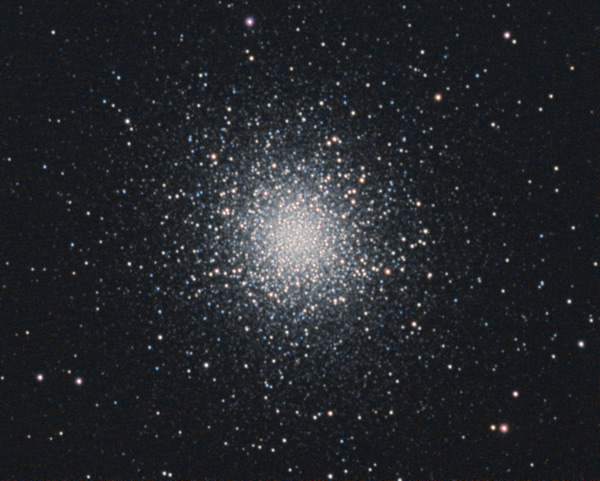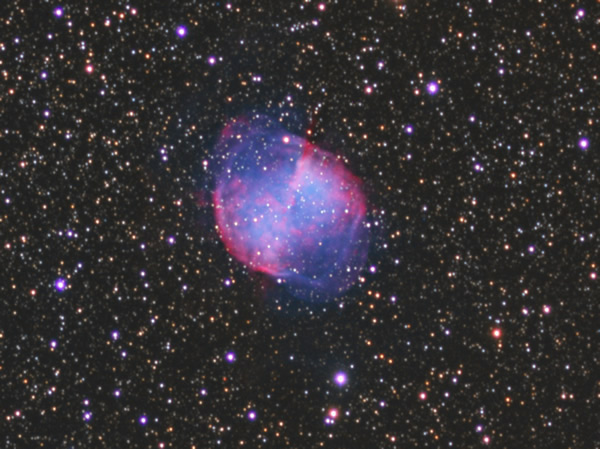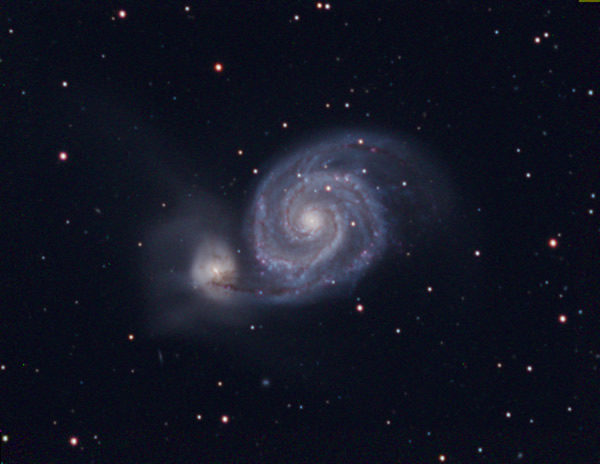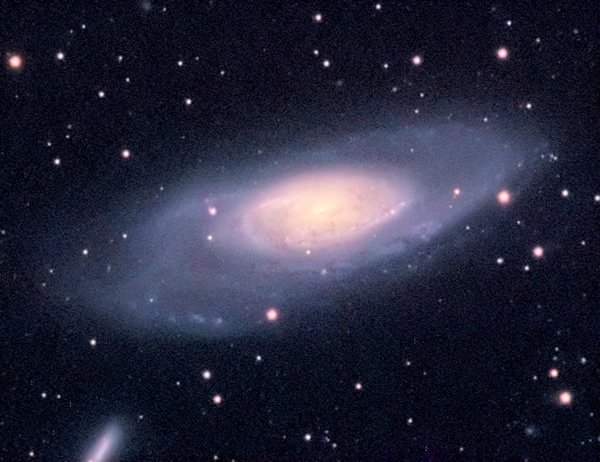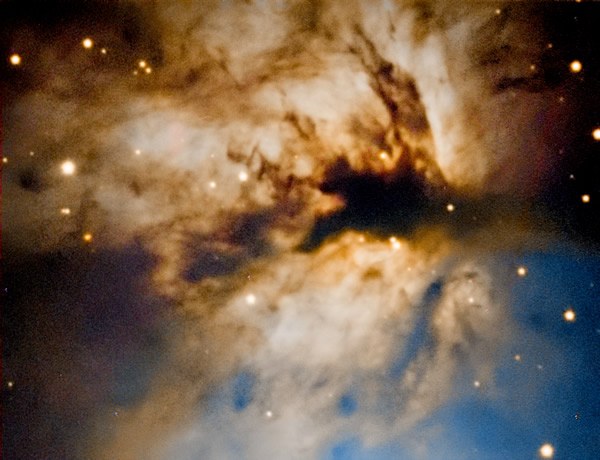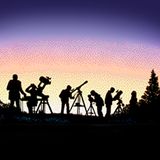
If you don't have time to read this entire review and you're looking for an "entry level" Astrophotography camera, stop reading, and buy the Orion G3 now! If you'd like to read more about my experiences with the G3, continue reading...
Unboxing Starshoot G3
The G3 arrived in a cardboard box and was well-packed. It comes with the G3 Camera, Power Cable, USB Cable, Owner's Manual, and Orion Camera Studio Software (OCSS).
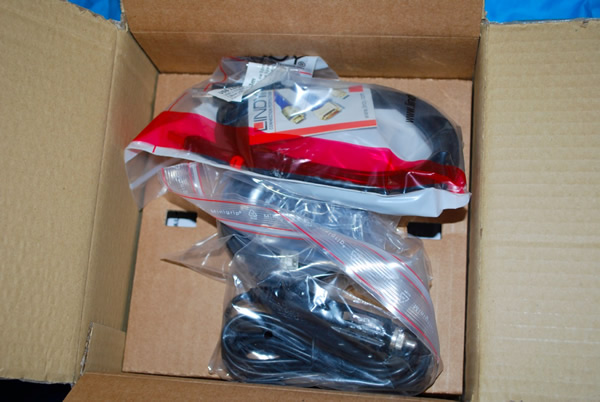
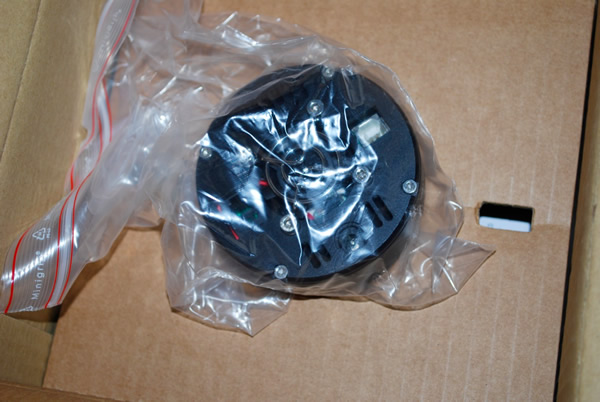
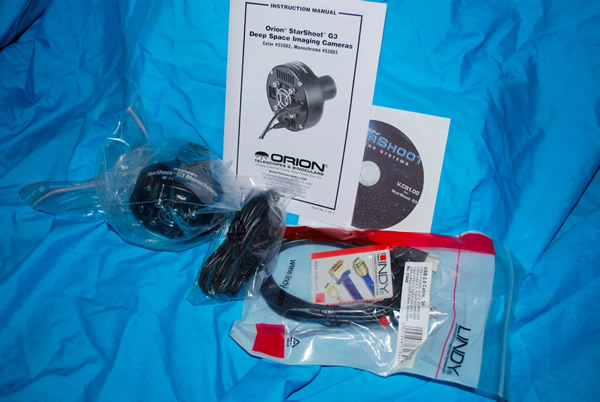
Mechanical Quality 
When you pick up the G3 it feels like a solid piece of hardware. The only reason I didn't give the G3 five stars was because of the cooling. I've never been able to set the G3 to one temperature and have the G3 stay at the set point all night. Regulated cooling is normally found on more expensive cameras. The G3's regulated cooling does help keep the camera noise to a minimum. As you know, during the night temperatures drop, and I found the G3 was susceptible to the ambient temperature.
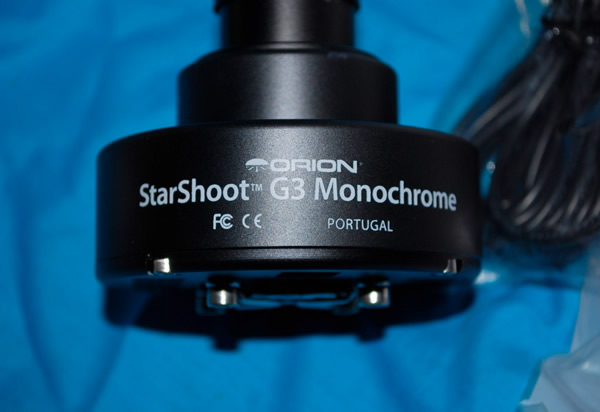
Image Quality 
The G3 image quality is very good. First let me show you an image of a dark frame. The dark frame helps illustrate the noise level on the G3. I have two dark frames each @ 600 second exposures, one dark taken in the winter, and one dark taken in the summer.
Below, the winter dark had a cooling set point of minus 10. At the start of the imaging session, the G3 kept on track at minus 10C, but, as the night went on, the CCD temp reached minus 20 Celsius.
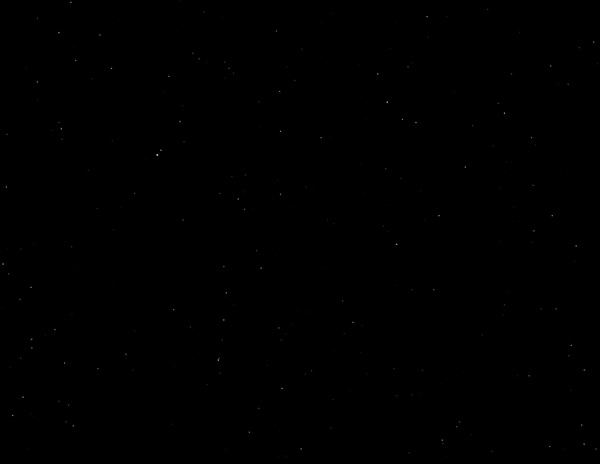
The second dark example was taken during the summer at plus +10C and in this example the actual CCD temp was plus +9.6C. This dark was taken early in the evening.
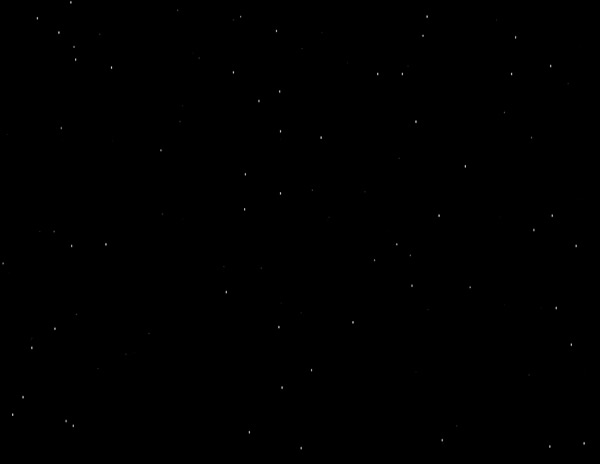
100% cropped side by side comparison (Left Upper Corner) of the dark frames at different temperatures:
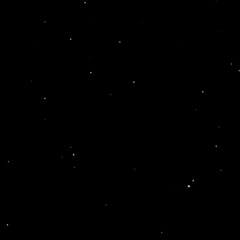
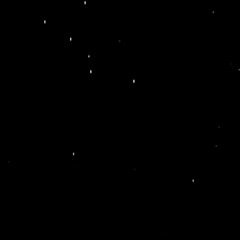
The Winter Dark @ -20C has "rounded" noise points vs. the Summer Darks @ +10C have "longer" vertical noise points.
Overall, the temperature set points didn't hold during the night. While the dark frames had some noise, the G3's regulated cooling does reduce camera noise.
G3 Image Samples
IC1396 - Elephant Trunk - Camera G3 Mono
Telescope: Orion ED80T CF Triplet
Exposures: 21 - 10 minute Luminance
Mount: Orion Atlas
NGC1055 - Galaxy 54 Million Light Years from Earth - Camera G3 Mono
Telescope: Orion ED80T CF Triplet
Exposures: 20 - 10 minute Luminance
Mount: Orion Atlas
M13 - Globular Cluster - Camera G3 Mono
Telescope: Orion EON120
Exposures: All 60 Seconds, 15 - Each of Luminance, Red, Green, and Blue Filters.
Mount: Orion Atlas
Filters: Orion LRGB Astrophotography Filter Set
M27 - Planetary Nebula - Camera G3 Mono
Telescope: Orion EON120
Exposures: All 600 Seconds, 10 - Each of Luminance, Red, Green, and Blue Filters.
Mount: Orion Atlas
Filters: Orion LRGB Astrophotography Filter Set
M51 - Whirlpool Galaxy - Camera G3 Mono
Telescope: Orion EON120
Exposures: All 600 Seconds, 15 - Each of Luminance, Red, Green, and Blue Filters.
Mount: Orion Atlas
Filters: Orion LRGB Astrophotography Filter Set
M106 - Galaxy - Camera G3 Mono
Telescope: Orion EON120
Exposures: All 600 Seconds, ONLY TWO - Each of Luminance, Red, Green, and Blue Filters.
Normally I don't like to show images with only TWO FRAMES, you can see the noise because of so little time. Ideally, I like to capture 15 or more frames for each filter.
Mount: Orion Atlas
Filters: Orion LRGB Astrophotography Filter Set
NGC2024 - Flame Nebula - Camera G3 Mono
Telescope: Orion EON120
Exposures: All 600 Seconds, ONLY FIVE - Each of Luminance, Red, Green, and Blue Filters. For this review, you can see more noise when you take fewer exposures. For Best results take 15 - 20 exposures!
Mount: Orion Atlas
Filters: Orion LRGB Astrophotography Filter Set
Software Installation & Use 
Orion Camera Studio Software (OCSS):
It's nice to see Orion develop astrophotography software. During the past year I've seen four significant upgrades to OCSS. The user interface is a little difficult to navigate at first and finding the user controls aren't intuitive to find. This can be frustrating when you don't know what you're looking for and beginners may get confused. Once you find the needed windows ("Camera Control" and "Capture") things come together quickly. If for some reason you "close" these windows, go to VIEW → RESET TOOLS DOCKING (As of OCSS Version 1.5). These little docking windows pull out of the user interface and you can "dock" them any way you'd like, but, the docking feature is a little hard to use. Some people may enjoy the ability to customize their photo capturing desktop.
I have an Orion Nautilus Filter Wheel and there is no feature to integrate an Orion filter wheel. It would be nice to have the Orion Nautilus Filter Wheel automatically change filters for the Mono G3. If you purchase a Color Version of the G3 then changing filters may not be a concern. May be a future release will include filter wheel support?
Overall, OCSS has a great start, and OCSS will help you acquire your photos. I applaud Orion for starting the development of their software. OCSS needs further development and the good thing is Orion seems to be making improvements!
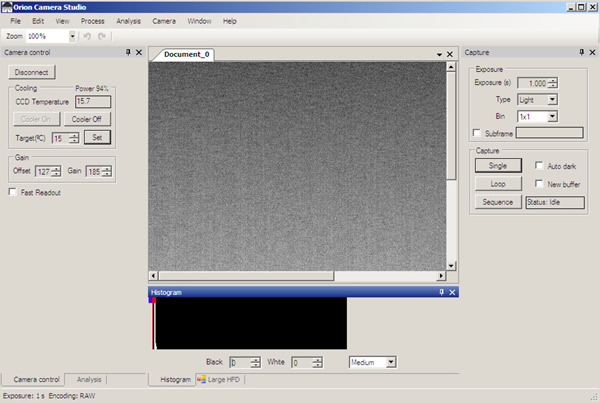
ASCOM Driver
The G3 ASCOM Driver works well with other Astro software like Maxim DL and Nebulosity.
Ease of Use 
Nothing is EASY in Astrophotography! Be prepared to take your time and learn baby steps. Soon you'll find the G3 will become easier to use. As you get started remember to take notes of what works for you.
Value 
The Orion G3 is an EXCELLENT VALUE! All of these advanced features are never seen at this low price. For a beginner wanting to get started, this is a great "entry level" astro cam.
Would I Recommend the G3 for Beginners? YES!
The Orion G3 is perfect for anyone wanting to get their feet wet in Astrophotography. The value is ideal for people unsure about Astrophotography as a hobby...but be warned! Astrophotography is highly addictive! After you use the G3 for a while you will become well versed in Astrophotography.
Overall Rating 
The Orion G3 is a very good astro camera. There are some needed improvements, but, nothing that will stop you from enjoying the great value of Orion's G3 Camera.
DIY G3 Travel Case
The G3 doesn't come with a protective travel case, but, we found an inexpensive solution that works very well. My wife found this "London SOHO New York" Beauty Case @ Wal-Mart. We also picked up the foam there too. The case was $14, the foam insert was $7, and you can pick up fabric ($2-$5) by the yard in any pattern to cover the foam. A DIY Case will cost you about $25 in materials. Check it out!
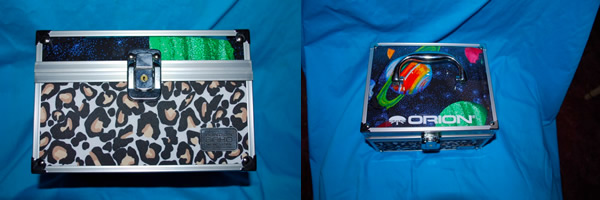
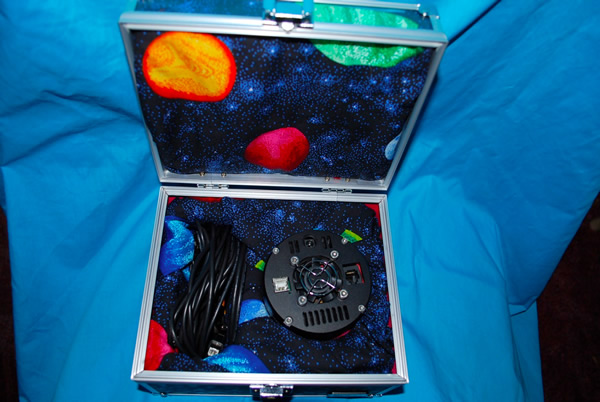
With a pair of scissors and about 30 minutes you can make a cool case for your G3. I picked up the "Orion Sticker" as a "hand-out" at SCAE. This case isn't sold by Orion, it's a DIY project!
More Photos!
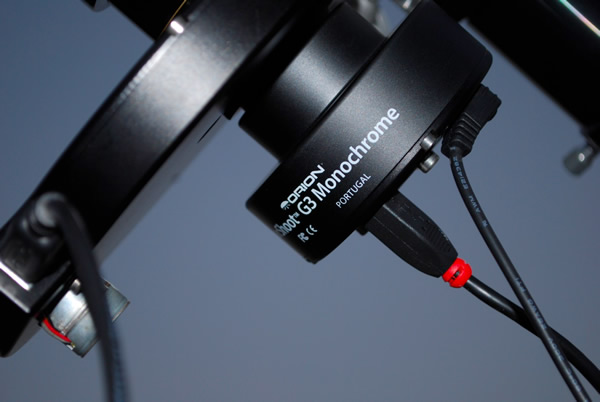
Orion Starshoot G3 Monochrome and Orion 2" Nautilus Filter Wheel.
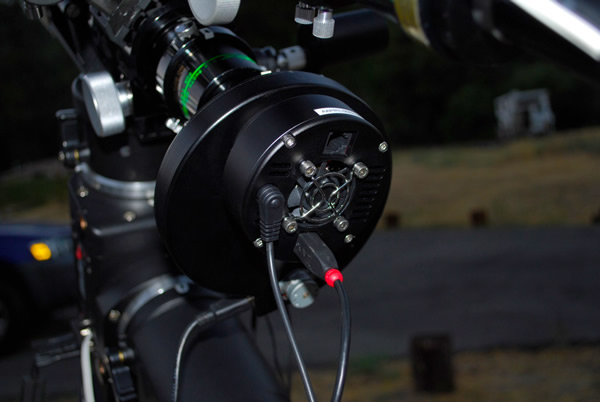
Rear View of Orion G3 Attached to Orion Nautilus Filter Wheel. Notice the "auto guider" port at the top of the G3 camera.
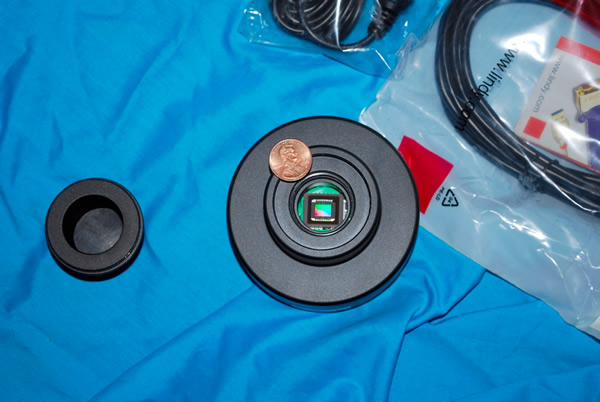
Orion G3 with 1.25" adapter removed. CCD compared to a penny.
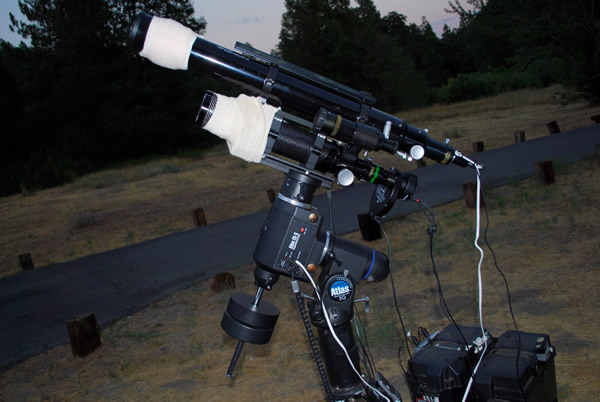
Telescope Setup: Orion 80mm F/11.4 Guide Scope, Orion ED80T CF Triplet Refractor, Orion Illuminated 50mm Finder Scope, Orion Nautilus Filter Wheel, Orion Starshoot G3 Monochrome camera, and Orion Atlas EQ-G Mount.
Statement of Disclosure: The product reviewed was provided to the author at no cost. Orion's policy does not always require authors who are regular Orion Community contributors to return products provided for reviews. Orion's product review policy is to post reviews regardless of the writer's positive or negative feedback of the product.
Doug Hubbell is a Systems Manager by day and an astrophotographer by night. Doug is an avid fan of astrophotography and enjoys creating astrophotography video tutorials. As Doug says, "The great outdoors and astrophotography are perfect for camping trips." He's been an Orion Customer since 10/2007. In 3/2008 Doug started contributing to the Orion Community, and he became an Orion beta tester in 2/2010.




